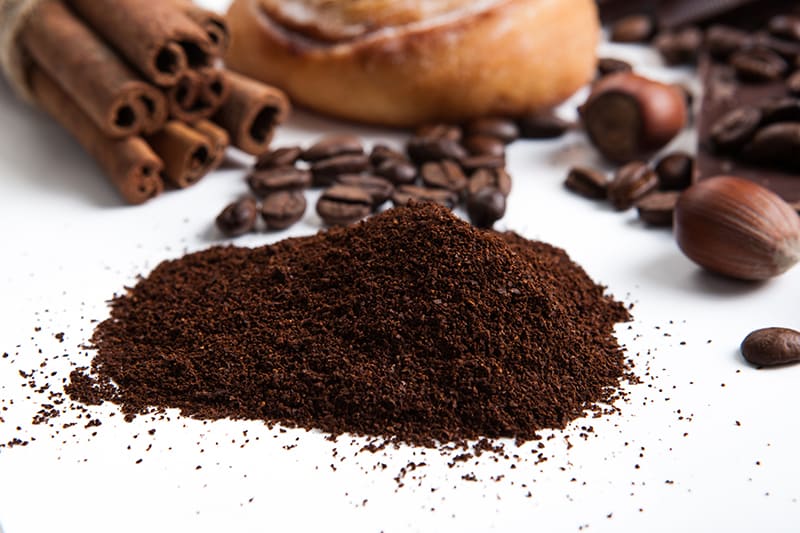The Truth About Putting Coffee Grounds Down the Sink - Learn More
The Truth About Putting Coffee Grounds Down the Sink - Learn More
Blog Article
They are making a few good pointers on the subject of Is it safe to dispose of coffee grounds down the sink? overall in this content beneath.

If you're an enthusiastic coffee enthusiast, you may be wondering about the most effective way to take care of your coffee premises. While it may seem hassle-free to clean them down the sink, this technique can bring about numerous concerns for both your plumbing and the setting. In this write-up, we'll check out whether it's safe to place coffee grounds down the sink and review alternate disposal techniques to consider.
Dangers of Putting Coffee Grounds Down the Sink
Plumbing Issues
Among the primary interest in getting rid of coffee premises down the sink is the threat of clogging your pipes. Coffee grounds do not liquify in water and can gather over time, developing a dense sludge that can obstruct drains pipes and bring about costly plumbing repair work.
Environmental Impact
Beyond the prospective damage to your plumbing, placing coffee premises down the sink can likewise hurt the atmosphere. When washed into the sewer system, coffee grounds can contribute to blockages in drain lines and therapy facilities. Furthermore, the high concentration of organic matter in coffee premises can deplete oxygen levels in rivers, adversely impacting marine life.
Alternatives to Disposing of Coffee Grounds
Composting
One green choice for disposing of coffee grounds is to compost them. Coffee premises are rich in nitrogen, making them a superb addition to compost heap or containers. As they decompose, they add nutrients to the dirt, boosting its fertility and appearance.
Garbage Disposal
If you don't have a composting arrangement, another option is to simply toss your coffee premises in the trash. Make sure to seal them in a compostable bag or container to prevent smells and leak. While this approach does not offer the exact same ecological advantages as composting, it's a safe and convenient way to deal with coffee premises.
Tips for Proper Disposal
Utilize a Sink Strainer
To prevent coffee premises from entering your sink's drain in the first place, consider making use of a sink strainer. These cost-effective tools catch strong fragments, consisting of coffee grounds, stopping them from triggering blockages.
Routine Maintenance
Despite how you select to deal with your coffee premises, it's important to maintain your plumbing consistently. Arrange periodic drainpipe cleanings to eliminate any kind of buildup and make certain that your pipes remain clear and free-flowing.
Final thought
While it might be alluring to wash coffee premises down the sink for benefit, doing so can have major effects for your plumbing and the atmosphere. Instead, consider composting your coffee grounds or getting rid of them in the garbage. By embracing accountable disposal practices, you can enjoy your coffee guilt-free while lessening your eco-friendly footprint.
Coffee Grounds Down The Drain: Are They OK?
Can Coffee Grounds Go Down the Sink?
You may be thinking, “But I pour them down the sink drain every day and I’ve never had a clogged drain!” You see, coffee grounds come from coffee beans, which are virtually rock hard by the time they’re ground and brewed. You certainly wouldn’t want to grind up the pit from a peach, apricot, or nectarine that is about just as hard because they wouldn’t break down like other foods, and it’s the same with coffee beans!
If you usually grind coffee beans in the garbage disposal because it seems the cleanest and convenient, we don’t fault you for that. And anyone who has ever had to clean up the trash with spilled coffee grounds after a dog got into it would understand the rationale. Unfortunately, coffee grounds do not break down in water, so instead of grinding up and washing away as normal foods do in a garbage disposal, they clump together and as time goes by, the grounds can form a clump and pack the drain until it develops a clog.
What to Do With Coffee Grounds
So, what do you do with coffee grounds if you can't put them down the drain? You could of course just throw them in the garbage, but we encourage you to give these practical uses for them a try!
Since coffee grounds contain key minerals for plant growth, you can use them to fertilize your garden. Coffee grounds not only fertilize gardens because they are mineral-rich, but they are also great at absorbing contaminants in the soil, particularly heavy metals. Coffee grounds are said to attract worms, which help gardens flourish. You can use coffee grounds as fertilizer by sprinkling them around your plants. You can compost your coffee grounds and use them at a later time. Coffee grounds are great insect repellents when you place them in bowls or sprinkle them around the areas you want to repel insects. To remove fleas from your dog or cat, simply shampoo your pet then rub coffee grounds throughout their fur. Rinse them off and dry as usual. Like baking soda, used coffee grounds can eliminate odors. You can place them in a bowl in the fridge and let them do the work! Mix coffee grounds with coconut oil for a wonderful face or body scrub, or to reduce the appearance of cellulite. https://www.wintershomeservices.com/blog/2019/august/coffee-grounds-down-the-drain-are-they-ok-/

Do you like reading about Can You Put Coffee Grounds in the Sink Garbage Disposal?? Create a remark down the page. We'd be glad to find out your ideas about this blog entry. We are looking forward that you come back again soon. Be sure to take the opportunity to distribute this blog post if you liked it. I cherish reading our article about Should You Put Coffee Grounds Down the Sink?.
Information Here Report this page